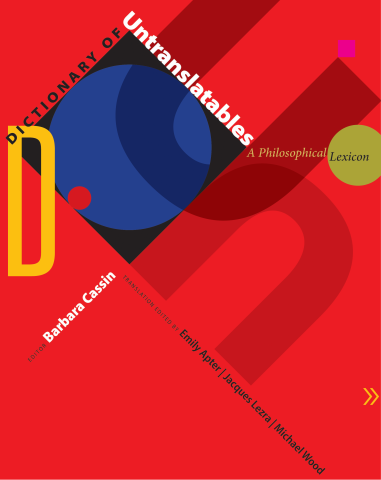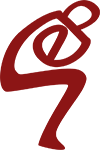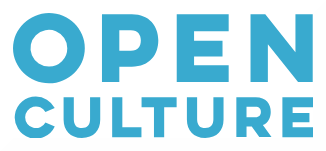| |
Philosophy Reference Links
Contents:
- Philosophical Dictionaries
- Encyclopedias
- Podcasts and Courses
- Philosophy Forums
- Philosophy Papers
- Philosophy Books
- Writing Resources
- Notable Philosophy Links
- Philosophy Courses Links
Highly recommended sites are listed with their logos.
There is a wealth of philosophical information on the Web. Some essential, useful, and
general philosophy links are provided here.
I. Philosophical Dictionaries
-
Also available as webpages here
(New York: Philosophical Library, 1942). Edited by Dagobert D. Runes, the dictionary
includes terms from ancient, medieval, and modern philosophy with terms from Eastern
philosophy as well — with definitions by over 70 notable philosophical
specialists. This hypertext version is provided by Andrew Chrucky. A searchable
version is online and available for download from Hathi Trust Digital Library
Runes'
Dictionary of Philosophy. Although dated in some respects,
this work is one of the best on the web for short accurate entries.
-
(1977-2002) Webpages. This well-informed guide, constructed by Garth Kemerling,
provides and effective gateway for insight into philosophical terms and names for the
beginning student of philosophy. Concise entries include recommended readings and are
cross-linked and hyperlinked to additional reliable sources on the Internet including
The Internet Encyclopedia of Philosophy, The Stanford Encyclopedia
of Philosophy, The Columbia Encyclopedia, The Perseus
Digital Library, Dictionary of Philosophy of Mind, and The
Catholic Encyclopedia. This resource is a functional, convenient, and helpful
beginning for the study of philosophical terms and persons. Entries are locatable by
alphabetical browsing.
-
3 Vols. with illustrations. Ed. James Mark Baldwin (New York:
The Macmillan Company, 1911). a scholarly international committee explicates the
development of thought with the clear and authoritative definition of terms. Subject
areas include ethics, aesthetics, logic, philosophy of religion, anthropology,
economics, political and social philosophy, philology, and education
Vol.
I A to Laws. 644 pp. Also here.
Vol.
II: Le to Z with indices of Greek, Latin, German, French, and Italian
Terms. 892 pp. Also here.
Vol. III Part I:
Bibliography of Philosophy, Psychology, and Cognate Subjects by Benjamin Rand. 541 pp.
Also here.
Vol. III Part II:
Bibliography of Philosophy, Psychology, and Cognate Subjects by Benjamin Rand. 1192 pp.
Also here.
-
Vol.
1 Entries: Abstraction in the Formation of Concepts – Design
Argument.
Vol.
2 Entries:
Despotism – Common Law.
Vol.
3 Entries:
Concept of Law – Protest Movements.
Vol.
4 Entries:
Psychological Ideas in Antiquity – Zeitgeist
(1973-74 New York: Charles Scribner's Sons, 1977-80). Editor in
Chief Philip P. Wiener and scholarly authors of the era craft central influential ideas
in the Western tradition. Now out of print, the Dictionary is published online with the
help of Scribner's and the Electric Text Center at the University of Virginia. The
dictionary includes articles on the historical development of a broad spectrum of
ideas in philosophy, religion, politics, literature, and the biological, physical, and
social sciences.
-
(New York: Sheldon & Compahy, 1878), 1044pp. This
philosophical dictionary includes William Fleming's Vocabulary of
Philosophy, Charles P. Krauth's supplemental Vocabulary of the
Philosophical Sciences, a bibliographical index of authors and proper
names with an organization of key subject terms, historical philosophical
theories and schools drawn from the “Table Synthetique” of the
Dictionaire des Sciences Philosophiques.
-
Supervised by William Dwight Whitney, The Century
Dictionary, esteemed for its lexicography, was the largest American
encyclopedic dictionaries of the English language ever published. This historical
dictionary is included here for its encyclopedic definitions of technical terms
at the end of the 19th century. The dictionary is searchable and browsable
directly by entering an term and clicking on JPEG or by means of a DjVu plug-in
at the Century
Dictionary Online site as developed by project directors Jeffery A.
and Sara G. Triggs. The dictionary is also downloadable.
-
(London: Reeves and Turner, 1887), 479 pp. By J. Radford Thomson. Quotations
are mainly from English language books by English, French and German authors
with emphasis on psychology, metaphysics, and ethics. An introduction describes
the branches of philosophy, the origin of philosophy, and the history of
philosophy. Contents include List of Principal Works Quoted, Index of Names and
Index of Subjects. Also available here.
-
Webpages. Edited by Eric Hochstein with an academic advisory board, The
Dictionary of Mind is also, in part, crowdsourced from professional
philosophers and ABD students. Concise definitions terms from the sub-discipline
of philosophy of mind as well as related philosophical terms are briefly defined
with occasional additions and web-references. Entries are found by site-search
or browse alphabetically.

-
(Princeton: Princeton University Press, 2014), pp. 1297. Under general editor
Emily Apter and a team international translators, philosophical terms from
more that 15 languages which are usually left untranslated from one language
to another (or are actually mistranslated in the other) are explained and
related to their field of study and their connectivity of use.
-
Search almost 30,000 entries by word entry or by alphabet letter; terms are related to
topics in religion, ethics, language, linguistics, philosophy, and additional subjects.
Content development and the editorial advisory board is headed by Wolfgang P. Kunze.
-
Clear, thorough, and essential definitions of terms for philosophy students are part of
the Student
Resources page provided by John Perry, Michael Braman, and John Martin Fischer
authors of Introduction to Philosophy: Classical and Contemporary Readings
6th ed. The minor hindrance of having to scroll through over thirty PDF pages
of text in more than offset by the reliability of this essential resource.
-
Wikipedia supplies short definitions of philosophical terms with
cross-references — entries exclude logic terms. Search is by alphabetical
browsing.
-
This academic "field guide" provides brief definitions of theories, doctrines,
movements, and approaches in philosophy, religion, politics, science, the arts,
and related disciplines. The Ism Book was originally written in
1990 and first placed in the public domain on the web in March, 1996. In 2005
the key terms were totally revised and is now continuously updated on the web by
Peter Saint-Andre. As a guide to the terminology of philosophy including some
of the ordinary language meanings of the central terms, the list of terms is
interlinked and is especially useful in reviewing for examinations or for
obtaining explanations and interpretations of key terms for philosophy papers.
-
Richard Taylor's six pages of selected Greek terms is useful for study in courses
in ancient Greek philosophy.

II. Philosophy
Encyclopedias
-
Most philosophy entries from this 11th edition of the Encyclopædia
Britannica, many written by well-known philosophers of the time, are
well-worth consulting fore their extremely useful in-depth commentary
on major works and authors before 1910. Hugh Chisholm was editor-in-chief
of this encyclopedia of “arts, sciences, literature, and general
information.” The volumes linked above are digitized by Google
and made available by the Hathi Trust Digital Library, a partnership
of academic and research institutions.
 This self-described “Field Guide to the Nomenclature of Philosophy”
consists of regularly updated original articles by thirty editors and three
hundred scholars in their fields. The articles are authoritative, peer-reviewed,
and available for personal and classroom use. The general editors James Fieser
and Bradley Dowden have designed the site to be most useful for students in
obtaining secondary source information on the key terms and personages of philosophy.
The Internet Encyclopedia of Philosophy can also be recommended
for obtaining an overview of the problems of philosophy for background readings
for lectures and papers. In general, the articles are well researched and are
accessible by undergraduates. The Stanford Encyclopedia of Philosophy,
its main competitor, is designed for more advanced work, although both encyclopedias
consist of scholarly work.
This self-described “Field Guide to the Nomenclature of Philosophy”
consists of regularly updated original articles by thirty editors and three
hundred scholars in their fields. The articles are authoritative, peer-reviewed,
and available for personal and classroom use. The general editors James Fieser
and Bradley Dowden have designed the site to be most useful for students in
obtaining secondary source information on the key terms and personages of philosophy.
The Internet Encyclopedia of Philosophy can also be recommended
for obtaining an overview of the problems of philosophy for background readings
for lectures and papers. In general, the articles are well researched and are
accessible by undergraduates. The Stanford Encyclopedia of Philosophy,
its main competitor, is designed for more advanced work, although both encyclopedias
consist of scholarly work.
 This continuously updated reference work is a publishing project of the Metaphysics
Research Lab at the Center for the Study of Language and Information (CSLI) at
Stanford University. The General editor of the Stanford Encyclopedia
is Edward N. Zalta. Authors of subject entries are well-known scholars in
their fields; even so, the subjects discussed are accessible by undergraduates
and are authoritative and well balanced. The Stanford Encyclopedia of
Philosophy is the most scholarly general source for philosophy on the
web and is essential as a starting point and background research for philosophy
term papers.
This continuously updated reference work is a publishing project of the Metaphysics
Research Lab at the Center for the Study of Language and Information (CSLI) at
Stanford University. The General editor of the Stanford Encyclopedia
is Edward N. Zalta. Authors of subject entries are well-known scholars in
their fields; even so, the subjects discussed are accessible by undergraduates
and are authoritative and well balanced. The Stanford Encyclopedia of
Philosophy is the most scholarly general source for philosophy on the
web and is essential as a starting point and background research for philosophy
term papers.
-
Search this dynamic resource, constructed by Andrew Chrucky, with results from
The Internet Encyclopedia of Philosophy, The Stanford
Encyclopedia of Philosophy, Dictionary of the Philosophy of
Mind, The Ism Book, The Catholic Encyclopedia,
A Dictionary of Philosophical Terms and Names
-
This threshold to resources includes summaries and links of academic branches of
philosophy, related academic fields, various lists of links to topics, and links
to internet resources. Separate portals are offered for aesthetics, epistemology, ethics, logic, metaphysics, and
political philosophy.
Wikipedia philosophical entries are often underrated. Even though some
entries reflect disproportionate emphases, it's a generally reliable resource.
Although academicians rarely, if ever, cite this source, most consult it from time
to time.

III. Philosophy Podcasts
-
BBC's Radio 4, hosted by Melvyn Bragg, has offered for MP3 download or Flash online
play over 150 audio program episodes and counting. Philosophical topics include
discussion of philosophers, theories, problems, and arguments. Program times usually
vary from 10 to 60 minutes, and program topics are searchable and cross-listed.
-
Over 100 podcasts, mostly by prominent academic philosophers, concerning many areas
of philosophy, both theoretical and practical, are available for download or listening
online. Topics range from current scholarly issues to inviting historical problems
of philosophy. The podcasts usually are from 30 to 45 minutes.
-
Peter Adamson provides all-encompassing audio lectures of historical world-philosophical
figures and ideas from the following categories or periods: the Presocratic, Socratic
and Platonic, Aristotelian, Hellenistic, Late Antiquity, Ancient Christian, Medieval,
Islamic, Spanish, Eastern, and African. The 20-minute-or-so audio lectures are
available for listening on site, on Apple podcast, or upon download. For each of the
over 300 lectures Prof. Adamson lists further readings and a relevant link to an
associated topic from the Stanford
Encyclopedia of Philosophy.
 Over 200 audio and video online university courses in a wide assortment philosophy
fields, including some Eastern philosophy topics, are available from Australian,
British, Canadian, Danish, French, Indian, Scottish, and U.S. universities.
Over 200 audio and video online university courses in a wide assortment philosophy
fields, including some Eastern philosophy topics, are available from Australian,
British, Canadian, Danish, French, Indian, Scottish, and U.S. universities.
-
Philosophy Bites is a series of podcasts hosted by philosophers Nigel
Warburton and David Edmonds featuring interviews of prominent philosophers in their
fields of expertise. Not only is the series exceptionally well-done from a philosophical
point of view, but it is one of the most popular podcast series on the web. Archive
podcast
interviews by theme number over 400.
 Audio and video lectures and lecture series are available on a wide
variety of topics including general philosophy, aesthetics, ethics,
and philosophies of criticism, film, mind, politics, and science,
among many, many others — over 130 pages of links to related topics.
Audio and video lectures and lecture series are available on a wide
variety of topics including general philosophy, aesthetics, ethics,
and philosophies of criticism, film, mind, politics, and science,
among many, many others — over 130 pages of links to related topics.
 About 150 animated videos on introductory philosophical problems and
topic from the point of view of doing philosophy as opposed to learning
about philosophy are provided as of midyear 2018. Philosophy graduate
students and professors usually explain the the topic in about 5 to 10
minutes. The videos are clearly, concisely, insightfully, and brilliantly
performed.
About 150 animated videos on introductory philosophical problems and
topic from the point of view of doing philosophy as opposed to learning
about philosophy are provided as of midyear 2018. Philosophy graduate
students and professors usually explain the the topic in about 5 to 10
minutes. The videos are clearly, concisely, insightfully, and brilliantly
performed.
-
The podcast's many episodes and supplemental blog mostly concern academic
topics in Western philosophy and philosophers in a relaxed fashion. Podcasts
times often run more than an hour and cover the spectrum of
philosophical topics.
-
Recent topics for these ABC RN radio podcasts and programs originate
from exploring current issues through the purview of logic, ethics, and
metaphysics. Earlier programs in the archives, beginning with 2005,
present philosophical problems and ideas from the ancient world to the
present. Programs topics are searchable by date beginning in 2005 or
by indexed topic.

|
|
IV. Philosophy Forums
-
Philosophy discussions comport with almost all areas of philosophy; fairly
active discussion is evident in almost specialized topics. The discussion
categories include metaphysics and epistemology, philosophy of mind, ethics,
political philosophy, philosophy of art, logic and philosophy of mathematics,
philosophy of religion , philosophy of science, and philosophy of language.
Monthly readings and reading groups are offered. Currently this is one of
the most popular discussion of philosophical subjects on the web.
-
These argumentative forums include active discussions in epistemology and
metaphysics, ethics and morality, political philosophy, philosophy of religion,
philosophy of science and philosophy of arts, but not logic and philosophy of
mathematics. The Philosophy Discussion Forums include the
opportunity to discuss a philosophy book of the month and occasionally an
interview in a one-on-one forum is available. This site presents a wonderful
opportunity for beginning students of philosophy to try out philosophical ideas
for opinions and assessment by a variety of respondents. Many of the participants
appear to be self-directed individuals willing to explore philosophical ideas.
-
The Philosophy Now Forum takes its name from its emphasis on
the discussion of topics from the magazine Philosophy Now on the same
named website — a site emphasizing current philosophical and ethics
issues. The forum includes discussion in all major branches of philosophy,
and, unlike Philosophy
Discussion Forums and The
Philosophy Forum, includes discussion in applied ethics, gender
philosophy, and philosophical counseling. Additionally, this forum attracts
more practical and popular interest than academic interest.

V. Philosophy Papers
-
BASE is a Universität Bielefeld Library search engine in English
with advanced searching features to locate quality academic web resources —
the data base includes more than 100 million documents and more than 5,000 sources,
60% of which are open access.
-
CogPrints archives papers in many fields including the philosophical
areas of epistemology, ethics, logic, metaphysics, philosophy of language, philosophy
of mind, and philosophy of science.. Almost 1,000 self-archived papers in philosophy
are browsable by subject.
-
CORE provides access to over 130 million open access research papers from
open access journal and international repositories — an extremely useful resource
with a straightforward search engine. More complex search query syntax is explained with
in the CORE API v2 docs page.
-
If you know the DOI (the digital object identifier) of a research paper, enter the DOI
number and letters into the text box and click "“Go.”. Your browser will
then load the webpage which explains how the paper can be accessed.
-
To search for the metadata of a research paper in order to find, cite, or read, click
on the “Search Metadata” tab on this linked page and enter the author and/or
title, or its DOI in the text search box. Results are sorted by relevance, publication,
year, DOI, and information to cite, filter, or get JSON metadata.
-
DOAJ in an online directory providing open access to world-wide academic
open access articles in over 10,000 peer-reviewed journals in science, technology,
medicine, social science, and humanities with search engine functionality in the Chrome browser.
 Google Scholar is a premiere search engine for all fields of philosophy.
When you search for a specific paper, below the entry found on the results page is
often a list of the available versions of the paper (i.e., versions available
in academic repositories or on an author's website). When accessed, those versions
often link to a site where the paper can be read or downloaded — sometimes as
a pre-publication. The Google Scholar search engine is perhaps the most
productive on the web for locating philosophy papers.
Google Scholar is a premiere search engine for all fields of philosophy.
When you search for a specific paper, below the entry found on the results page is
often a list of the available versions of the paper (i.e., versions available
in academic repositories or on an author's website). When accessed, those versions
often link to a site where the paper can be read or downloaded — sometimes as
a pre-publication. The Google Scholar search engine is perhaps the most
productive on the web for locating philosophy papers.
-
This academic semantic search engine employs machine learning to locate
authors, journal, subjects, or subjects and “understands” their
interrelation with fields of study, conferences, journals, and institutions.
When locating a paper, this search engine sometimes can be used in conjunction
with Google Scholar
to locate the paper or a pre-publication of the paper on the web in an academic
repository.
 PhilPapers, the most comprehensive index of philosophy on the web,
provides access to information about philosophy books, journals, and open-access
archives. Some texts are accessible online; most are proprietary and only
accessible through an institutional licensee (i.e., university, research
center), or
through websites illegal in most countries such as
Sci-Hub.
Philosophical topics in books and journals are browsable by topics or by search
engine. The site states that its open-access eprint archive, hosted at
PhilArchive, numbers over 30,000 items
and is the largest on the web. PhilArchive is searchable by means of over
5,000 categories on the PhilArchive
category browse page.
PhilPapers, the most comprehensive index of philosophy on the web,
provides access to information about philosophy books, journals, and open-access
archives. Some texts are accessible online; most are proprietary and only
accessible through an institutional licensee (i.e., university, research
center), or
through websites illegal in most countries such as
Sci-Hub.
Philosophical topics in books and journals are browsable by topics or by search
engine. The site states that its open-access eprint archive, hosted at
PhilArchive, numbers over 30,000 items
and is the largest on the web. PhilArchive is searchable by means of over
5,000 categories on the PhilArchive
category browse page.

VI. Searching for Philosophy
Books
-
This collection of public domain and open access documents of Western
literature and philosophy can be queried by
universal search,
author's name,
title, or
subject tag.
The collection is limited to important complete works in American
literature, English literature, and philosophy, and are mostly in plain text.
-
The nonfiction section of Bartleby's Great Books Online offers
access to many classic philosophy works as part of The Harvard Classics series of
books. These works can be accessed from the Index of Subjects or the
Index of Titles.
 As a meta-index for major ebook sites, the philosophy section of the Digital
Book Index provides downloadable and web-based access to a plenitude of books
in all fields of philosophy. Links to
Classic Western and
Eastern philosophical authors are available; moreover, over 1,200 books in
philosophy and religion are available in a variety of formats. See the
Main Help Page
for more complex searches.
As a meta-index for major ebook sites, the philosophy section of the Digital
Book Index provides downloadable and web-based access to a plenitude of books
in all fields of philosophy. Links to
Classic Western and
Eastern philosophical authors are available; moreover, over 1,200 books in
philosophy and religion are available in a variety of formats. See the
Main Help Page
for more complex searches.
 Google Books provides the means to read, download, cite,
and translate books. Many of the almost 30 million books in the Google
library are displayed fully, others partially, and many none at all.
Search filters include author, title, publisher, subject, publication
date, and text words or phrases. Public domain books can be downloaded
in several different formats. Google Advanced Search is an
extremely useful resource for finding passages for scholarly books for
citation.
Google Books provides the means to read, download, cite,
and translate books. Many of the almost 30 million books in the Google
library are displayed fully, others partially, and many none at all.
Search filters include author, title, publisher, subject, publication
date, and text words or phrases. Public domain books can be downloaded
in several different formats. Google Advanced Search is an
extremely useful resource for finding passages for scholarly books for
citation.

- With over 120 mostly U.S. partnering institutions and universities
offering free open access to many public domain books with many
thousands of philosophy books, most downloadable.
Advanced Catalog
Search and Advanced
Full-Text Search provide different filters for search terms including
“subject” and “full view” limits. The Hathi
Trust Digital Library accesses services for public domain from
Google Books, the Internet Archive, and other
institutions. Sometimes, full downloads are limited to members of partner
institutions.
-
There are over 3,000 articles available on this wiki: many providing
original or translations of Aristotelian, medieval, and traditional logic
and philosophy, and many in related fields informed by logic. Works
translated, being translated, or linked to, are cataloged from Aristotle,
Augustine, Boethius, Aquinas, Scotus and Ockham.
-
Over 400 philosophy books are downloadable in different formats, including
PDF, EPUB, AZW, MOBI, and TXT. The general
catalog contains over 33,000 free books, most available on eReaders. Search
topics are by genre, title, author, language, recommended books, or popular
books.
-
Over 2 million free books can be accessed on this site hosted by
University of Pennsylvania library and edited by John Mark Ockerbloom.
Books are listed according to the Library of Congress call numbers and
are also browsed by subject term — books
in the subject of philosophy alone are listed on 27 pages. If you
are seeking a philosophy book online, this site may well be the best
site currently on the web. All books are free, in full text, and in a
standard format.
-
Access to this archive of digital resources for higher education is
by Search and by
Browse in the
main catalog for over 3200 text works and over 3200 legacy format works
(with some duplications) for download. Many if not most texts are
from the 1700s and 1800s.
-
The Perseus Digital Library, directed by editor-in-chief
Gregory R. Crane at Tufts University, is the premier site for studying
the Classics: especially the history, literature, and culture of the
Greco-Roman world. Recently the site is expanding to include other
projects such as works in ethics as well. The site is somewhat difficult
to navigate, but well worth the effort.
Browse by Authors or
Browse by Catalog using
title, language, subject, or other fields. A
User
Guide: Searching the Catalog and the
Quick
Start Guide are especially helpful for locating specific works.
-
Project Gutenberg provides over 57,000 open source works
in several formats and in many different languages for reading online or
for reading after download. Search
for books or Browse the
Online Book Catalog by author, title, or language. Project Gutenberg
Australia lists over 500 classics linked to related Wikipedia
entries on their Western
World's Greatest Books page.
-
This free online resource in philosophy, ethics, and religion is sponsored
by SopiaOmni Press, an independent publisher concentrating in works that
“add to the sum total of human wisdom.” The site provides numerous
texts in Western and Eastern Philosophy to be downloaded or printed for
personal or educational use. Main categories include metaphysics, epistemology,
ethics, philosophy of religion, philosophy of education, personal identity,
philosophy of mind, freedom and determinism.,and aesthetics.

VII. Writing Resources
-
This 7-page guide from Harvard College is an excellent source,
with examples, for writing a structured argumentative paper. The
guide explains how to structure the paper and illustrates essential
aspects of content.
 This 52-page book by Eliah Chudnoff covers the five main features
of a philosophical paper: the purpose, the audience, the argumentation,
the narrative, and the style. Its clear explanations and examples make
this a valuable source for the university student.
This 52-page book by Eliah Chudnoff covers the five main features
of a philosophical paper: the purpose, the audience, the argumentation,
the narrative, and the style. Its clear explanations and examples make
this a valuable source for the university student.
-
Jim Pryor provides an excellent guide for the main steps of writing
together with a list of criteria for assessment of the work.
-
Douglas W. Portmore (Arizona State University) essays strategies,
steps, and main aspects for writing an argumentative paper.
-
These well-maintained multi-page lists of resources for philosophy
research include links to philosophy databases, digitized
books, podcasts, writing guides, and many other philosophical materials.
-
This useful step-by-step guide for students to do basic assignment
research in depth includes recommended links to dictionaries and
encyclopedias, catalog searching, searching for articles, critically
analyzing information, and other writing guides.
-
This handbook explains the basics of writing philosophy with
examples by focusing on these essay skills: how to analyze a
question, how to write a thesis statement, how to construct an
outline, and how to use an essay template. The 35 page booklet also
contains an annotated model essay. Formats available include
PDF, DOC, MOBI, and EPUB.

VIII. Notable
Philosophy Links
|
|
